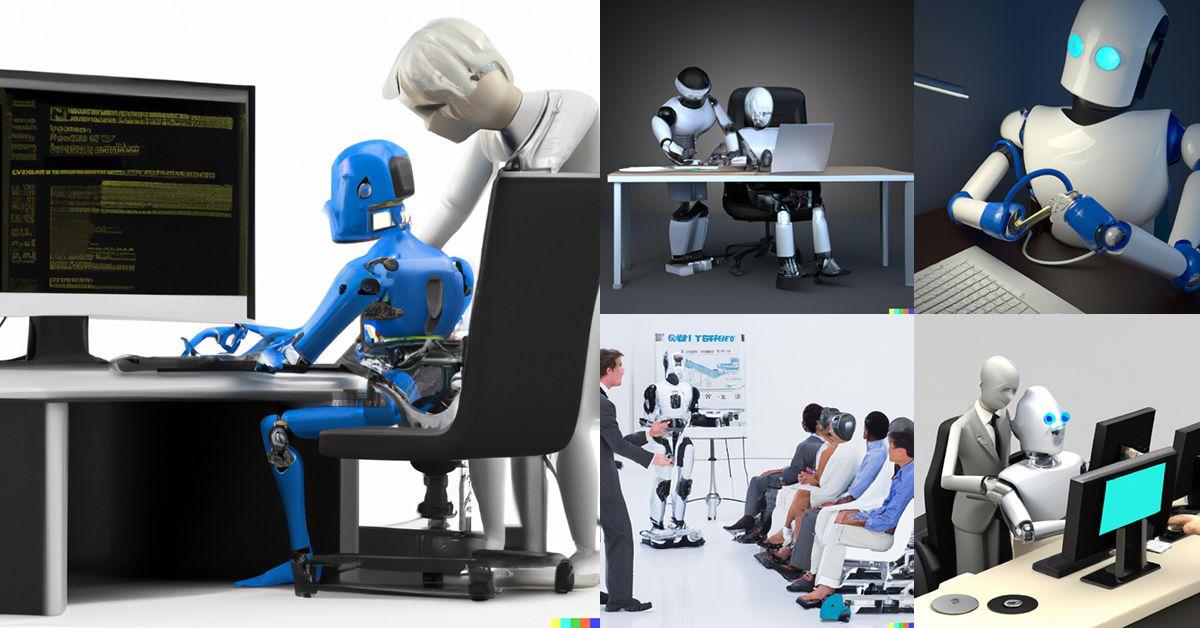Will Generative AI Mean the End of Debugging Forums?
May 25, 2023
By Janea Systems

Recent reports have highlighted significant drops in traffic for, the popular programmer question-and-answer site, Stack Overflow. The finger of blame is being pointed squarely at AI chatbots like ChatGPT and GitHub's CoPilot.
Stack Overflow's Decline
According to SimilarWeb, Stack Overflow has seen a steady decline in its traffic since the start of 2022. Considering AI shows no signs of stopping, and stackoverflow.com's traffic decreased by 17.75% from March to April this year, it's no wonder the company is taking measures to minimize generative AI’s exposure on the forum. Arguing that ChatGPT is often inaccurate, the Stack Overflow team announced a ban on posting ChatGPT content to its site at the end of last year. They've also announced plans to charge LLM companies, like OpenAI, for the data on their platform from as early as this year.
Why Developers are Turning to AI
In a landscape where time is of the essence and amidst a backdrop of major tech layoffs, many developers are finding solace in the immediacy of AI solutions like ChatGPT. Why wait for a response on a forum when a sophisticated AI can generate a potential solution in real time?
Our Software Engineers' Perspectives
Despite this scenario painting a grim picture of debugging forums, here at Janea, we're not convinced that generative AI will be the end of the likes of Stack Overflow. Here’s why:
We, as a team of open source advocates, truly appreciate the beauty of platforms rooted in a community-driven approach, and we know that many developers feel the same way. We asked our expert software engineers:
How do you see the role of generative AI tools in relation to community-driven debugging forums?
- As a complete substitute for these forums. 0%
- As a substantial but not total substitute. 22%
- As a complementary tool to these forums. 78%
- As unrelated and non-impacting to these forums. 0%
Software Engineer Vedran Grudenic, also brought up an important point:
“If the trend continues, future LLMs won't have as many reliable and up to date Q&A sources to train on.”
In addition to posting questions and getting answers, forums like Stack Overflow facilitate meaningful conversations and debates about the merits and demerits of different solutions. As sophisticated as it may be, this culture of collaboration and knowledge sharing is something that AI cannot replicate.
AI-generated solutions, while impressive, are not infallible. They provide a good starting point but often need to be tweaked and fine-tuned to meet specific needs.
As David Carr from SimilarWeb eloquently put it, "The answer that comes back may not be exactly what the developer needs but is often close enough to be shaped and tweaked into a working solution."
The Future of Debugging Code
Stack Overflow is already acknowledging the shift and looking to leverage AI to enhance its offerings. In a statement to Gizmodo, Stack Overflow's Matt Trocchio confirmed that approximately 10% of the company is working on features leveraging generative AI.
At this point, it's too early to tell if the rise of generative AI will lead to the death of debugging forums. With Stack Overflow’s plans to incorporate AI into their platform, it's likely that we will soon witness an evolution of how we debug code, with generative AI working in unison with developers instead of competing against one another.
In the world of tech, change is the only constant, and AI's disruptive nature will continue to change the landscape in exciting and challenging ways. We're at the very beginning of seeing AI tools and community-led platforms converge. While the impact of generative AI is still unfolding, the future of programming is bright, so whether you're a seasoned developer or a newbie, stay flexible, keep learning, and, most importantly, keep coding.
To learn more about how our team helps the largest software-centric companies overcome their software engineering challenges, get in contact here.
Related Blogs
Let's talk about your project
Let's talk about your project
Ready to discuss your software engineering needs with our team of experts?
